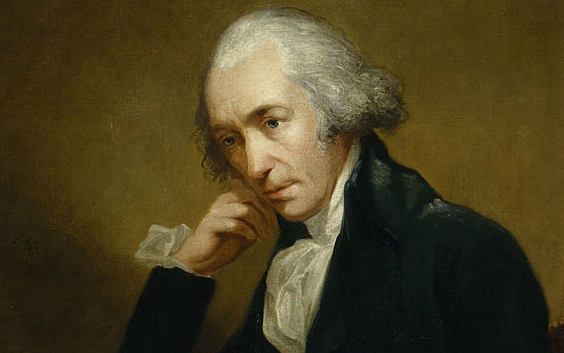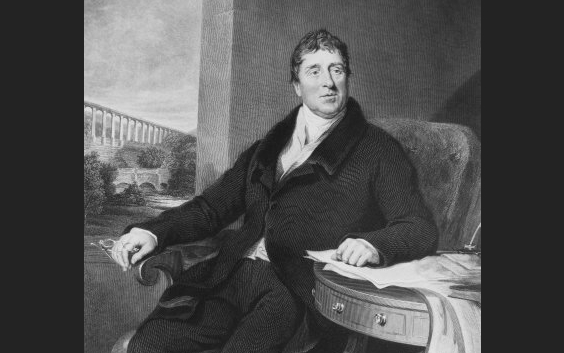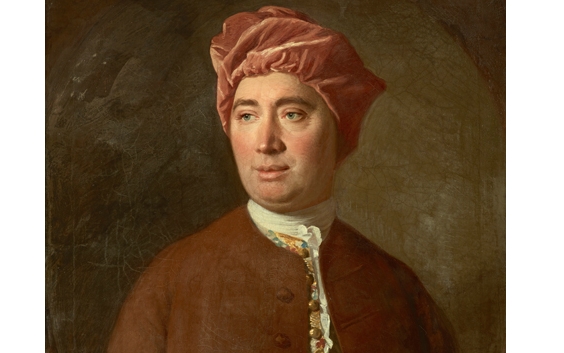James Hutton FRSE (3 June 1726 – 26 March 1797) was a Scottish geologist, physician, chemical manufacturer, naturalist, and experimental agriculturalist. He originated the theory of uniformitarianism—a fundamental principle of geology—that explains the features of the Earth’s crust by means of natural processes over geologic time. Hutton’s work established geology as a science, and as a result he is referred to as the “Father of Modern Geology”. Through observation and carefully reasoned geological arguments, Hutton came to believe that the Earth was perpetually being formed; he recognised that the history…
Read MoreCategory: Famous Scots
Robert The Bruce
Robert I (11 July 1274 – 7 June 1329), popularly known as Robert the Bruce, was King of Scots from 1306 until his death in 1329. Robert was one of the most famous warriors of his generation, and eventually led Scotland during the First War of Scottish Independence against England. He fought successfully during his reign to regain Scotland’s place as an independent country and is today revered in Scotland as a national hero. Descended from the Anglo-Norman and Gaelic nobility, his paternal fourth-great grandfather was King David I. Robert’s…
Read MoreAdam Smith
Adam Smith FRSA (16 June 1723 – 17 July 1790) was a Scottish economist, philosopher and author as well as a moral philosopher, a pioneer of political economy and a key figure during the Scottish Enlightenment era. Smith is best known for two classic works: The Theory of Moral Sentiments (1759) and An Inquiry into the Nature and Causes of the Wealth of Nations (1776). The latter, usually abbreviated as The Wealth of Nations, is considered his magnum opus and the first modern work of economics. Smith studied social philosophy…
Read MoreEliza Wigham
ARTICLE SOURCE: >> en.wikipedia.org/wiki/Eliza_Wigham Elizabeth (Eliza) Wigham (23 February 1820 – 3 November 1899) was a leading suffragist and abolitionist in 19th-century Edinburgh, Scotland. She was involved in several major campaigns to improve women’s rights in 19th-century Britain, and has been noted as one of the leading citizens of Edinburgh. Her stepmother, Jane Smeal, was a leading activist in Glasgow, and her brother John Richardson Wigham was a prominent lighthouse engineer. Photo: Public Domain – http://www.nls.uk/collections/topics/slavery Life Eliza Wigham was born on 23 February 1820 in Edinburgh to John Tertius…
Read MoreJames Watt
ARTICLE SOURCE: >> en.wikipedia.org/wiki/James_Watt James Watt FRS FRSE (30 January 1736 – 25 August 1819) was a Scottish inventor, mechanical engineer, and chemist who improved on Thomas Newcomen’s 1712 Newcomen steam engine with his Watt steam engine in 1781, which was fundamental to the changes brought by the Industrial Revolution in both his native Great Britain and the rest of the world. While working as an instrument maker at the University of Glasgow, Watt became interested in the technology of steam engines. He realised that contemporary engine designs wasted a…
Read MoreThomas Telford
ARTICLE SOURCE: >> en.wikipedia.org/wiki/Thomas_Telford Thomas Telford FRS, FRSE (9 August 1757 – 2 September 1834) was a Scottish civil engineer, architect and stonemason, and a noted road, bridge and canal builder. After establishing himself as an engineer of road and canal projects in Shropshire, he designed numerous infrastructure projects in his native Scotland, as well as harbours and tunnels. Such was his reputation as a prolific designer of highways and related bridges, he was dubbed The Colossus of Roads (a pun on the Colossus of Rhodes), and, reflecting his command…
Read MoreDavid Hume
ARTICLE SOURCE: >> en.wikipedia.org/wiki/David_Hume David Hume (7 May 1711 – 25 August 1776) (born David Home) was a Scottish philosopher, historian, economist, and essayist, who is best known today for his highly influential system of radical philosophical empiricism, skepticism, and naturalism. Hume’s empiricist approach to philosophy places him with John Locke, George Berkeley, Francis Bacon, and Thomas Hobbes as a British Empiricist. Beginning with his A Treatise of Human Nature (1739), Hume strove to create a total naturalistic science of man that examined the psychological basis of human nature. Against…
Read MoreJohn Logie Baird
ARTICLE SOURCE: >> en.wikipedia.org/wiki/John_Logie_Baird John Logie Baird FRSE 14 August 1888 – 14 June 1946) was a Scottish engineer, innovator, one of the inventors of the mechanical television, demonstrating the first working television system on 26 January 1926, and inventor of both the first publicly demonstrated colour television system, and the first purely electronic colour television picture tube. In 1928 the Baird Television Development Company achieved the first transatlantic television transmission. Baird’s early technological successes and his role in the practical introduction of broadcast television for home entertainment have earned…
Read MoreMary Queen Of Scots
Life of Mary, Queen of Scots http://www.nms.ac.uk/explore/stories/scottish-history-and-archaeology/mary-queen-of-scots/mary-queen-of-scots/life-and-deathline-of-mary-queen-of-scots/
Read MoreAlexander Fleming
ARTICLE SOURCE & MORE INFO AT: >> https://en.wikipedia.org/wiki/Alexander_Fleming Sir Alexander Fleming FRS FRSE FRCS (6 August 1881 – 11 March 1955) was a Scottish biologist, pharmacologist and botanist. His best-known discoveries are the enzyme lysozyme in 1923 and the world’s first antibiotic substance benzylpenicillin (Penicillin G) from the mould Penicillium notatum in 1928, for which he shared the Nobel Prize in Physiology or Medicine in 1945 with Howard Florey and Ernst Boris Chain. He wrote many articles on bacteriology, immunology, and chemotherapy. Fleming was knighted for his scientific achievements in…
Read More







